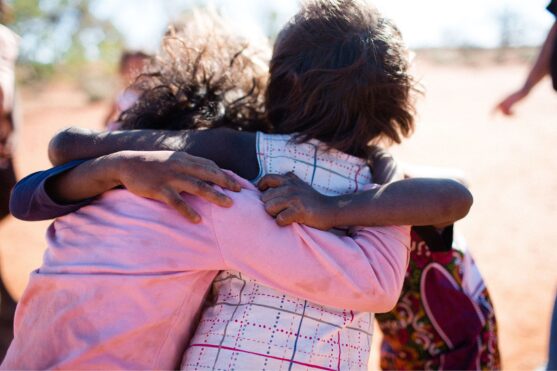Staying the course for generational change with Children’s Ground
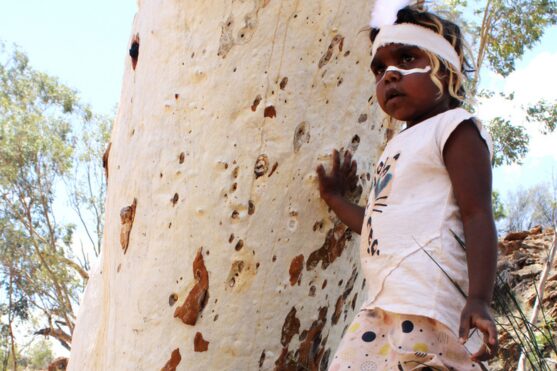
This story was first published in the hardcopy edition of Inspiring Stories of Giving volume 1 in October 2023.
“This is about long-term outcomes. It’s not about outputs, and it’s not about how many people come through the door on a given day or week – these are markers that are often given to or requested by funders, but they don’t tell the story of change or impact, often they’re just window dressing. We must create deep and enduring change with accountability to the people and share this in a meaningful way with our partners,” says Children’s Ground CEO, Jane Vadiveloo.
Children’s Ground is designed to change the status quo – led by First Nations people and the oldest knowledge systems in the world to achieve radical reform for First Nations children over a 25-year period. Children’s Ground uses an evidence-based approach. Working predominantly with communities in the Northern Territory, Children’s Ground focuses on prevention through the key platforms of learning, family health and wellbeing, economic development and wellbeing, community development and wellbeing and creative and cultural development and wellbeing. This strengths-based approach harnesses the talent and leadership each community has within it and a vision to achieve excellence and equity.
“Children’s Ground is designed to defy injustice. We have an approach that is based on deep experience and evidence, and we are seeing the results. First Nations children deserve to have the very best opportunities where they live – in education, health and wellbeing, safety and economic life – while celebrating and retaining their rights to their culture, knowledge systems and languages.
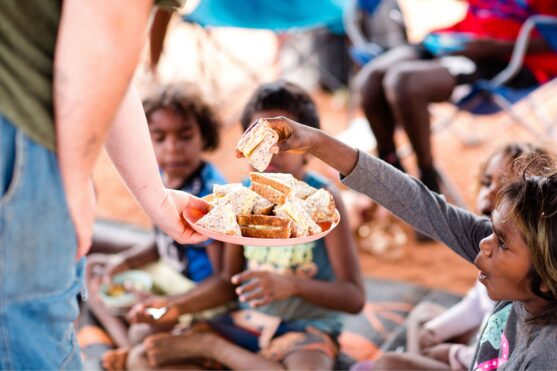
“First Nations leaders have been seeking this for generations and it is their leadership that will create change. The solution is found in the communities that lead the work. It is their voice, their vision that we back. And through this we build the social, cultural and economic capital for future generations and long-term change,” says Jane.
“It must be led by local people who are the experts and have 65,000 years of practice and knowledge.”
English Family Foundation (EFF) director, Tessa English, was first introduced to Jane and the work of Children’s Ground in 2011. She was immediately impressed and has maintained a deep belief that the organisation provides the best possible pathway for restoring equity and justice for First Nations’ children.
“Ten years on, there are kids who are thriving, going to school every day, crossing cultures, and there’s concrete proof that it’s working,” Tessa says.
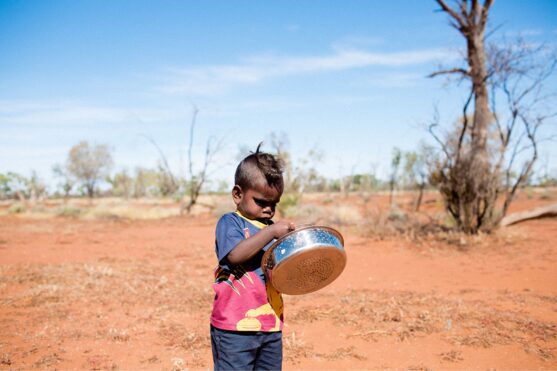
EFF has a long history of supporting social changemakers to transform ecosystems for impact, yet Children’s Ground required a new type of long-term commitment. Being effective meant staying the course through the natural rollercoaster of not-for-profit growth and development.
“It’s a generational project,” says Allan English. “With Children’s Ground, especially in the early stages, there were lots of resources going in and it was very hard to see the impact, until over time, you get the lasting benefits.”
For Children’s Ground, the value of EFF’s enduring support, despite many challenges and setbacks, has been priceless. “I get teary when I think of EFF because we wouldn’t be here without their support,” Jane says. “EFF backed the vision of our communities and believed in their ability to lead change.”
“It was instrumental in the early stages of the organisation and in terms of us growing and building from nothing to where we are today. It’s about the money, it’s about the belief, it’s about knowing people have got your back no matter how hard it gets. And you don’t know how hard it’s going to get. Now we are seeing the impact of this early stage long term investment come to life,” Jane says.
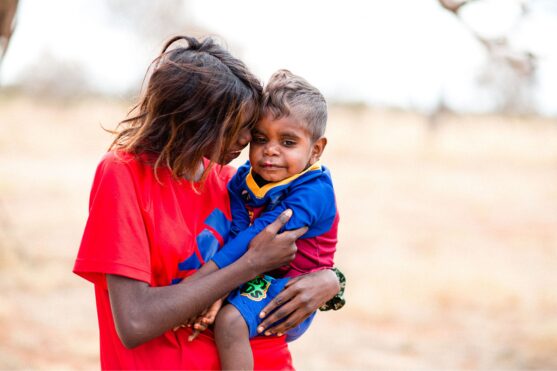
Belinda Morrissey, EFF’s CEO, says: “This approach is based on a lot of really clear, evidence-driven models out of the US. Children’s Ground has really done its homework around what type of generational change works, and where the levers are that can be pulled to make sure this is going to be the best possible support mechanism for these communities.”
From the strength of its philanthropic funding, Children’s Ground was able to swiftly grow its operations in Central Australia. An evaluation of the Ampe-kenhe-ahle (Central Australian) operations has confirmed the impressive outcomes delivered in early childhood, local First Nations workforce, community governance, health access, cultural and language revival and strengthening, also seen from the organisation’s earlier work in West Arnhem.
Philanthropic support is acutely important to the long-term success of Children’s Ground. While government can play a vital role in supporting the organisation’s work, Jane says the history of government relations in Aboriginal communities, political change and short term, funding cycles make this challenging.
“Because people in government come from a history of power and control, it’s really hard for them to acknowledge that there are a lot of Aboriginal people in this country who are incredibly brilliant, with solutions and that Aboriginal children are incredibly smart but require the right environments to excel. We don’t need to apply a deficit focus – we just need to back this brilliance,” Jane says.
